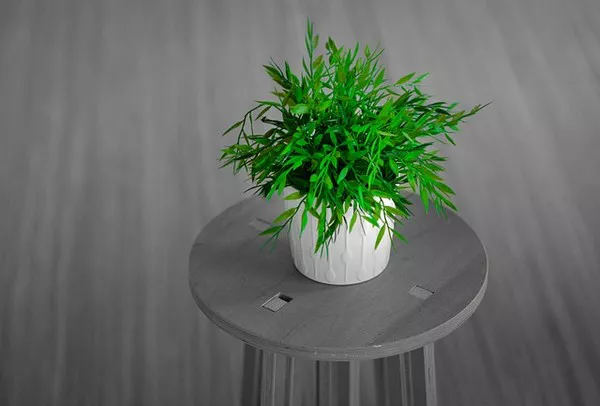In the world of gardening, enthusiasts are constantly seeking natural and sustainable ways to enhance soil fertility and promote plant growth. One often overlooked, yet valuable, resource is coffee grounds. Those rich, aromatic remnants of your morning brew are not just destined for the compost bin – they can be a powerful ally in nurturing your garden. In this article, we will delve into the various ways in which coffee grounds can be a boon to different types of plants.
Enriching Soil Structure and Composition
Coffee grounds are an excellent source of organic matter that can enhance soil structure and composition. When incorporated into the soil, they help improve drainage in clayey soils and water retention in sandy soils. This ability to balance soil texture makes coffee grounds universally beneficial for a wide variety of plants.
Nitrogen Boost for Leafy Greens
Plants, especially leafy greens like lettuce and spinach, thrive on nitrogen. Coffee grounds are nitrogen-rich, providing an organic and slow-release source of this essential nutrient. Nitrogen is a key component in chlorophyll, the green pigment responsible for photosynthesis, making it crucial for the development of healthy and vibrant foliage.
Acid-Loving Plants: Azaleas, Rhododendrons, and Blueberries
Coffee grounds are slightly acidic, making them ideal for plants that thrive in acidic soil conditions. Acid-loving plants, such as azaleas, rhododendrons, and blueberries, benefit from the pH-lowering properties of coffee grounds. Incorporating coffee grounds into the soil around these plants helps create an environment conducive to their growth and overall well-being.
Natural Pest Repellent
The aromatic compounds in coffee grounds have been found to deter certain pests. Sprinkling coffee grounds around plants acts as a natural barrier against snails, slugs, and ants. These pests find the scent repulsive, helping to protect your garden without resorting to chemical pesticides. Additionally, coffee grounds can be sprinkled on the soil to create a physical barrier that discourages crawling insects.
Fertilizer for Flowering Plants
Flowering plants, such as roses, benefit from the phosphorus content found in coffee grounds. Phosphorus is crucial for flower and fruit development. By incorporating coffee grounds into the soil, you can provide a slow-release phosphorus source, promoting robust blooms and healthy flowering plants.
Composting Companion
Coffee grounds are a valuable addition to compost piles. They are a green material, meaning they are rich in nitrogen, a necessary component for successful composting. When added to compost, coffee grounds accelerate the decomposition process and contribute to the overall nutrient content of the compost. This nutrient-rich compost can then be used to fertilize a wide range of plants.
Root Vegetable Support
Root vegetables, including carrots and radishes, benefit from the organic matter and improved soil structure provided by coffee grounds. The loose, well-draining soil created by coffee grounds encourages healthy root development and prevents soil compaction. This results in better-shaped and more abundant harvests of root vegetables.
Mulching Magic
Coffee grounds make an excellent mulch for a variety of plants. When applied as a mulch around the base of plants, coffee grounds help suppress weeds, retain soil moisture, and regulate soil temperature. The gradual decomposition of the grounds also contributes to the nutrient content of the soil, providing a sustainable and cost-effective mulching solution.
Houseplants’ Best Friend
Indoor plants, too, can benefit from coffee grounds. Incorporating used coffee grounds into the potting mix provides a nutrient boost for houseplants. The grounds act as a slow-release fertilizer, ensuring a steady supply of essential nutrients over time. Additionally, coffee grounds enhance soil aeration, preventing compaction in potted plants.
Tomatoes: A Winning Partnership
Tomatoes are notorious for being heavy feeders, and coffee grounds can be a game-changer in their cultivation. Rich in nitrogen and other essential nutrients, coffee grounds contribute to the overall health and productivity of tomato plants. When applied as a side dressing or incorporated into the soil, coffee grounds help ensure a bountiful harvest of flavorful tomatoes.
See Also: How To Grow Succulents From Leaf?A Comprehensive Guide
Conclusion
In conclusion, the humble coffee grounds that often end up in the trash can find a new purpose in nurturing your garden. From enriching soil structure to providing essential nutrients, acting as a natural pest repellent, and even supporting specific plant types, coffee grounds prove to be a versatile and eco-friendly gardening companion. As you sip your morning coffee, consider the potential for those grounds to contribute to the lush and thriving greenery in your outdoor and indoor spaces.


